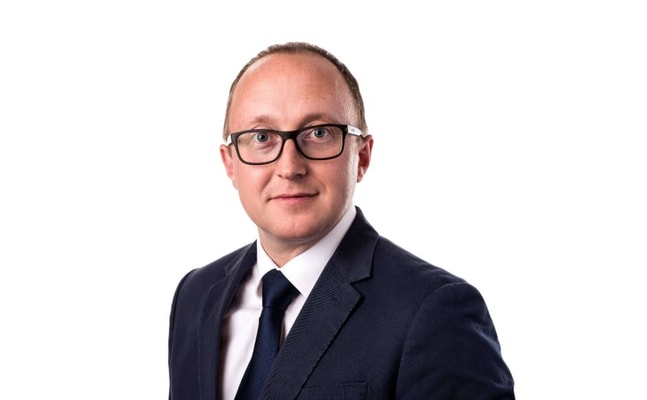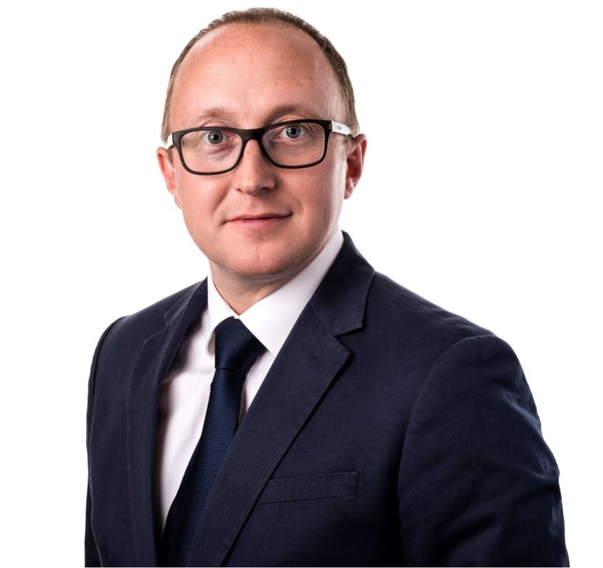David Pinniger, CFA, Fund Manager of the Polar Capital Biotechnology Fund

13 MAY, 2020
By Constanza Ramos

David joined Polar Capital in August 2013 as a portfolio manager within the Healthcare team, to launch the Polar Capital Biotechnology Fund. Prior to joining Polar Capital, David was portfolio manager of the International Biotechnology Trust at SV Life Sciences. Previously, David spent three years working at venture capital firm Abingworth as an analyst managing biotechnology investments held across the firm's venture and specialist funds, and four years at Morgan Stanley as an analyst covering the European pharmaceuticals and biotechnology sector.
When and how did you start your career in the financial industry? Did you have any other vocation?
I started my career at Morgan Stanley in London in the summer of 2000, just as the stock market was coming off the top of the dotcom technology bubble. I joined the investment bank’s equity research division, helping to provide the firm’s clients with investment insights into European biotechnology companies. It was my first professional job after leaving university where I studied human sciences with the aim of pursuing a career in either human healthcare policy or medicine. It was an extraordinary time for me - I worked incredibly hard for several years and learned a huge amount with some truly outstanding colleagues, some of whom became lifelong friends and also just as importantly I have since reunited with as my current colleagues at Polar Capital. I think if I hadn't become a fund manager I would have become a medical doctor, though sometimes it feels as though the two roles can come very close. I have to admit that I love my job and I can’t see myself ever doing anything else.

What’s your biggest challenge as a portfolio manager?
I think perhaps the biggest challenge as portfolio manager generally is prioritizing your efforts, making decisions about what to engage with, what to leave for later, and what to ignore as not critical to the function. It’s a privilege to be able to specialize on a particular industry, but I think for investing in the pharmaceutical and biotechnology industry it is also a necessity. The science of human biology, of health and disease, and the endeavour of new drug discovery and development is incredibly complex to understand, and innovation is happening unbelievably quickly. It takes all the hours in the day, almost every day of the week, every week of the year, to keep on top of, if not ahead of developments in order to make sound investment decisions. As a portfolio manager that’s just the start, one of the biggest challenges, but also joys, is conveying the investment case accurately and fairly to clients, and serving their needs to the highest possible standard. It’s just not possible for one person to do that, so having a team is essential. That is where Polar Capital excels - there are absolutely outstanding professionals in all roles at the firm and all have a singular focus on serving the firm’s clients as best they can.

What sustains your drive within the industry?
It’s actually quite simple - to be the best in the world at what I do. My role as manager of the Biotechnology Fund is to generate superior risk-adjusted investment returns for clients who have themselves identified the biotechnology industry as an area to allocate capital. Clients give us responsibility for their capital which is a huge privilege and responsibility. The drive comes from that responsibility and of fulfilling a promise. Active fund management gets bad publicity for perhaps being merely a waste of time as it is assumed that financial markets are efficient but it is my view that active and thoughtful investing is absolutely core to the capital markets. In my case it is my job to try and effectively allocate investment capital to the best people, using the best science and technology, to develop the best medicines. Successful drug discovery and development is an art as much as science.. People with serious and life-threatening healthcare conditions can’t wait for random mathematical games to conclude - financial capital needs to be directed thoughtfully to get breakthrough medicines to patients as quickly as possible.
What has been the most extraordinary thing you have seen in markets? Are the current market scenarios/volatility caused by the Healthcare crisis shocking to you?
I think this year has been totally extraordinary from an investment perspective. We’ve seen a long-feared viral pandemic in the shape of SARS-Cov-2 or “COVID-19” disrupt the global economy in a way most, if not all of us, have yet to experience in our lifetimes. We’ve seen huge disruption to our daily lives, unprecedented government restriction of individual freedoms of movement and activity, and central banks around the world aggressively moving to try and support the global financial system. We have also observed the ability of individuals to just simply pay for the essentials of daily living while strategies are implemented to mitigate the burden of the coronavirus pandemic on healthcare systems. Generally speaking, very little shocks me, except perhaps extreme negative examples of human behaviour, but the coronavirus crisis has on balance brought out the very best in people - compassion, solidarity and resilience to endure. These are extraordinary times for everyone, I just hope that in future years I can look back and feel comfortable that I played my part, however small and insignificant.
What are the main differentiating factors (competitive advantages) of Polar capital funds in current market conditions?
It has to come down to the firm’s focus on active fund management, and of the total engagement of experienced investment professionals supported by the world-class operations, compliance, and client servicing teams at Polar Capital. The current stock market environment is truly extraordinary, investors are grappling with numerous conflicting forces pulling asset prices in different directions with significant day to day volatility, and the outlook perhaps has never been more confusing. Government policy in relation to the coronavirus pandemic and personal circumstances has impacted many finance professionals who are finding it a challenge to fulfill their professional and personal responsibilities. As a relatively small organization with close client relationships, we hope that as a business we can provide everything our clients need to move through the current time by limiting additional stress and concern, and hopefully leave them better positioned on the other side.
Which assets do you think will perform better (survive) in 2020 considering the current market situations? Which assets are performing well under stress scenarios?
We do think the defensive growth profile of the pharmaceutical and biotechnology industry is particularly attractive at the current time. While all industries and businesses are facing various degrees of disruption caused by government efforts to overcome the coronavirus pandemic, we believe demand for medicines should be relatively unimpaired over the coming months. At the start of the year we thought the political sentiment towards the pharmaceutical and biotechnology industry was starting to improve and would improve further in the run-up to the US Presidential elections later in 2020. We continue to think this is the case, particularly as during the coronavirus crisis, the industry has shown remarkable ability to investigate medical solutions. This has included conducting clinical studies to investigate the potential benefits of antiviral drugs, the creation of new vaccine candidates, the development of molecular diagnostics, and even the scale-up manufacturing of simple but specialist medical supplies and equipment required to treat the numbers of patients presenting to hospital severely ill with a coronavirus infection. We have truly been seeing the real character and potential of the biotechnology industry in recent weeks, and I think investors are responding positively to that.
Could you please tell us about why is it beneficial for investors to invest in the Biotechnology Industry?
An investment in the biotechnology sector is to provide financial capital to companies employing some of the smartest, most driven, compassionate people in the world attempting to discover and develop medicines to treat a whole range of serious life-threatening illnesses. With sufficient capital and application of hearts and minds, it sometimes seems like almost anything is possible, as is being demonstrated during the current coronavirus pandemic. In recent years we have seen functional cures emerge for a range of serious life-threatening diseases, whether it’s viral hepatitis infection or specific forms of cancer, and huge progress in treatments for patients with rarer diseases such as cystic fibrosis for example. None of this would have been possible without the huge amount of financial capital required to fund research and development to both unravel the complexity of human biology as well as to develop new tools and technologies that together create more powerful precision medicines. Demand for better medicines is almost wholly economically insensitive, driven as it is by relentless demographic forces as well as the need for healthcare systems around the world to deliver better healthcare more effectively. We hope that as experienced active fund managers, we can allocate capital to the right people, the right science and the right companies to generate strong returns for our investors that are ultimately providing capital at risk for that innovation to happen.
Related interviews
 Ben Tingling (MFS IM) on the Contrarian Value fund: “It adapts well to an increasingly uncertain macroeconomic environment”
Ben Tingling (MFS IM) on the Contrarian Value fund: “It adapts well to an increasingly uncertain macroeconomic environment”By RankiaPro Europe

